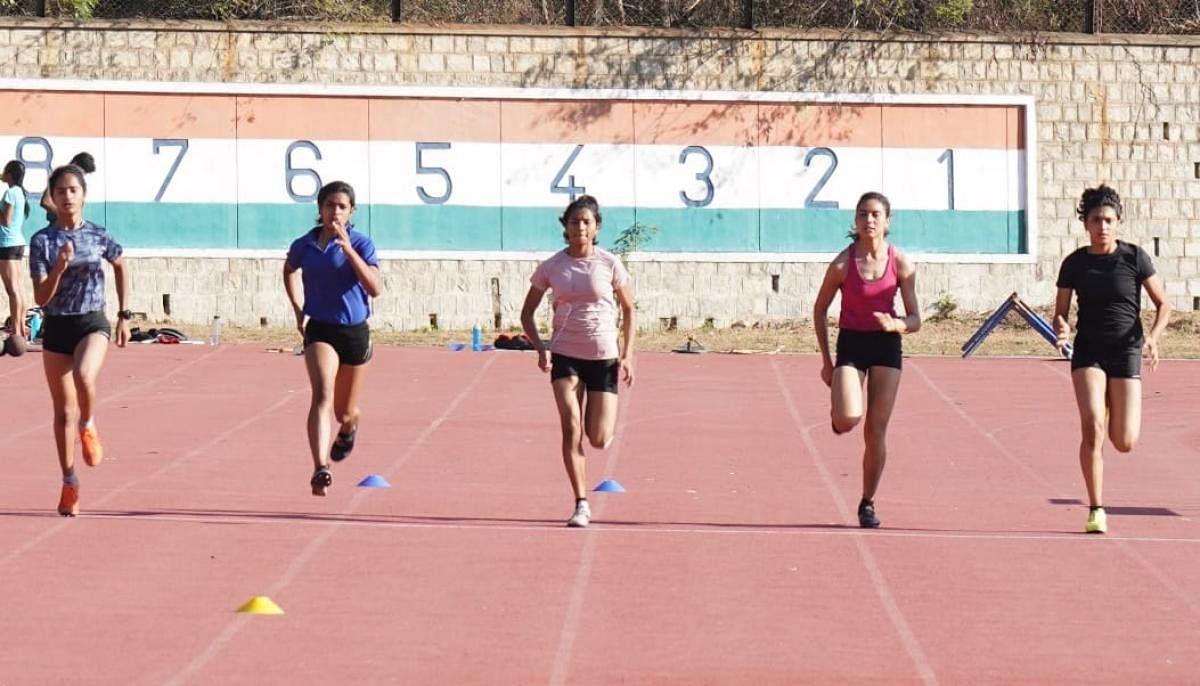By George!

Anju Bobby George was India’s first World champion in the International Association of Athletics Federations (IAAF) World Championships in 2003. She won the gold in the IAAF World Athletics final and went on to win several accolades, including being placed fifth in the 2004 Athens Olympics. And, she did all that with one kidney, or Renal Agenesis, as she recently revealed on her Twitter account.
This Arjuna awardee is now the senior vice-president of the Athletics Federation of India and after her voluntary retirement from her Chennai Customs job, is busy building the Anju Bobby Sports Foundation which trains girls for future Olympic events.
Can you talk a little more about your academy and the girls you’re training for the Olympics?
It’s a three-year-old dream project but because of Covid and other issues, we were delayed by almost one year. In three or four months, our setup will be ready and all our athletes will come into our place from the Sports Authority of India (SAI) centre. Most of the kids joined two years ago. We have 13 kids, all girls. My dream is to support more women athletes. Most of the girls are from the northern part of the country, they are all from humble backgrounds. One of them is Shaili Singh, a child of a single parent. She’s an under-16 national record holder and has already got a Rs 15 lakh sponsorship. We are aiming for the 2024 and 2028 Olympics. We need at least a minimum training age. However, the athletes will be going for the junior world championship next year.
What events are you training them for?
Now it’s long jump and triple jump. At this age, they can do a few more events. Once they mature, they can choose one event to specialise in. They can attempt the heptathlon or pentathlon — what they need is strength, speed, and reaction. Long jumpers are all-rounders.
What about coaches?
We have a tie-up with Mike Powell as a mentor. He’s a world record holder. We already have Bobby, who has proved he can produce a top-level athlete. But we may need some assistant coaches.
Are you also taking care of the girls’ academics?
Yes, they go to nearby schools. It’s a must, if they have to understand the science behind sport, they have to have the basic knowledge. Even if they can’t go to school, we are making alternative arrangements for them to take the exams.
So, what according to you is Brand Anju?
When I was active as an athlete, it was very difficult to find a manager, and promoting myself was not possible. I had to train, travel a lot, and also train abroad. Today, I need to raise funds for my academy. The central government has given us a grant of Rs 5 crore, but the project is almost double that and we are spending from our pocket. We have to find sponsors, and through my appearances, we have to do that.
How do you perform your different roles — international athlete, wife, mom, and now training younger athletes?
It’s hectic. I multi-task. As an athlete, I have to go for public appearances, and as a mother, I have to take care of my kids. I have a ten-year-old boy and a seven-year-old girl. Initially, I started by training them. But they would give lots of excuses, so I called the community kids to join in.
Every day at 5 pm I train the younger kids. We teach them the basics. Athletics is the mother of all sports, it teaches agility, ability, and mobility, it’s a lesson for life. Once they’re into sports, they’ll learn how to manage time, how to be punctual, how to mingle in a group, about team spirit, winning, and losing. At the academy, Bobby is doing the main coaching for the athletes, while I train the little kids in the community. Of course, with the pandemic, every parent wants to send their kids for athletics to build their immunity.
Often athletes after their career, retire and do nothing. But now, many top athletes are starting academies and giving back to society. What we learned, we are transferring to the next generation.